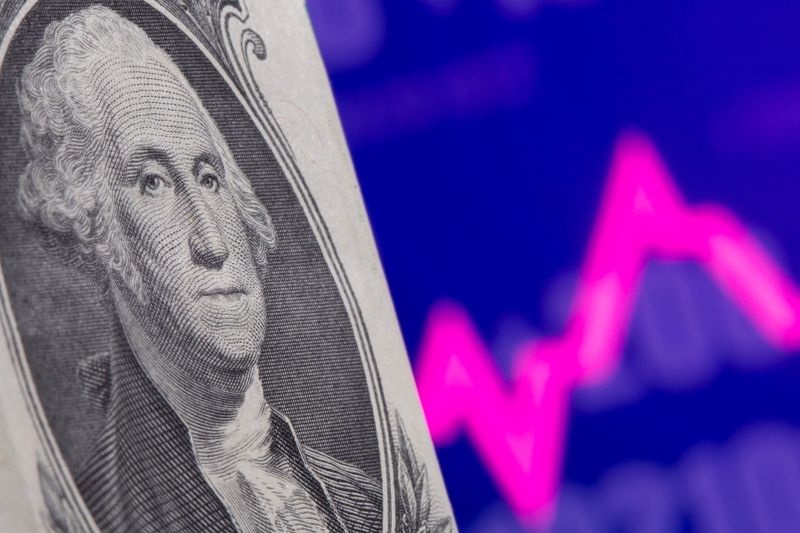By Peter Nurse
Investing.com - The U.S. dollar climbed higher in early European trade Wednesday after U.S. consumer inflation remained elevated in January, while sterling fell after a drop in the U.K. CPI rate.
At 03:10 ET (07:10 GMT), the Dollar Index, which tracks the greenback against a basket of six other currencies, traded 0.3% higher at 103.457.
Headline U.S. consumer inflation came in at 6.4% year-on-year for January, higher than the 6.2% economists had expected, while the widely-watched year-on-year core figure, which takes out volatile items like energy and food, came in at 5.6%, ahead of the predicted 5.5%.
These figures suggest that inflation is proving difficult to tame, even after a series of interest rate hikes, opening up the likelihood that the Federal Reserve will see a higher end point for these increases than the market had originally envisioned.
New York Federal Reserve President John Williams noted late Tuesday that inflation remains too high, despite some moderation in recent months, implying more hikes would be needed.
"Our work is not yet done," he said, adding that "we will stay the course until our job is done."
U.S. retail sales figures are due later in the session and will provide clues as to how the U.S. consumer is bearing up after the series of Fed rate hikes in the past year.
Elsewhere, GBP/USD fell 0.6% to 1.2094 after the annual headline rate of U.K. inflation came in at 10.1% in January, a drop from 10.5% last month. While this was a larger fall than expected, and the third month in a row that it has retreated, it remains more than five times the Bank of England's 2% target.
EUR/USD fell 0.2% to 1.0709, with the euro caught up in the dollar buying ahead of a speech by European Central Bank President Christine Lagarde.
Lagarde stated last month that the ECB will keep raising interest rates quickly to slow inflation which remained far too high, and traders will be looking to see whether she has toned down this sentiment.
USD/JPY rose 0.2% to 133.32, with traders still trying to digest the nomination of Kazuo Ueda, an academic, to be the next governor of the Bank of Japan, while the risk-sensitive AUD/USD fell 1% to 0.691372.
